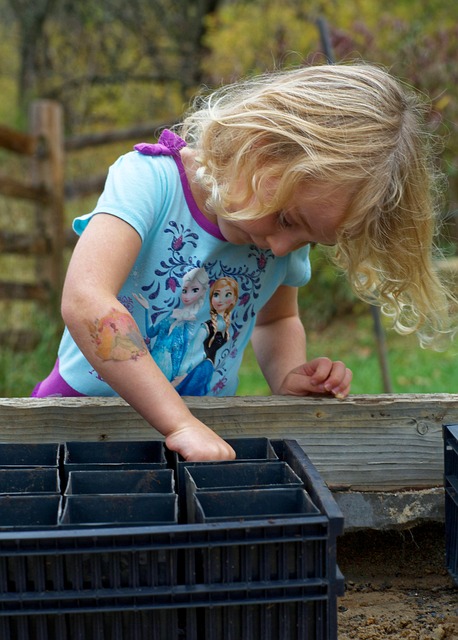
A child’s well-being is shaped by various factors that influence their physical, emotional, social, and cognitive development. To ensure healthy growth and a strong foundation for the future, it’s crucial to provide an environment that nurtures their holistic development. In this article, we’ll explore the top five important conditions for a child’s well-being, with a focus on essential subjects such as child development stages, early childhood development, social and emotional development, cognitive development, and language development.
1. Support Through Child Development Stages:
Child development occurs in distinct stages, each marked by key milestones that reflect a child’s growth across physical, cognitive, social, and emotional domains. Understanding these stages allows parents and caregivers to provide appropriate support that aligns with the child’s developmental needs.
From infancy to adolescence, children undergo significant transformations. In early childhood development, for instance, physical abilities such as walking and fine motor skills improve, while emotional awareness and social interactions grow. Recognizing these stages helps parents respond to their child’s needs, offering guidance, patience, and encouragement at every step. This support is crucial for building confidence, autonomy, and resilience in children as they navigate the complexities of growing up.
2. Early Childhood Development: Building a Strong Foundation:

The early years of a child’s life, particularly between birth and age five, are critical for brain development. During this period, children’s experiences shape their cognitive, social, and emotional growth, laying the groundwork for future learning and well-being. Providing a nurturing and stimulating environment is essential for promoting healthy early childhood development.
Parents and caregivers should focus on providing interactive and engaging experiences that foster curiosity and exploration. Activities such as reading, playing, and problem-solving help enhance cognitive development in children. Moreover, positive and supportive relationships with adults play a key role in developing emotional security, which is vital for long-term mental health.
3. Nurturing Social and Emotional Development:
A child’s ability to understand and manage their emotions, build relationships, and develop empathy is central to their social and emotional development. This aspect of well-being is influenced by their interactions with family members, peers, and caregivers.
Encouraging open communication, active listening, and emotional expression are crucial for helping children develop a sense of security and self-awareness. Emotional regulation, a key component of social and emotional development, allows children to cope with challenges and adapt to new situations. Additionally, peer interactions and social play teach children important skills like cooperation, problem-solving, and empathy. Creating opportunities for positive social experiences can greatly enhance a child’s emotional intelligence and social competence.
4. Cognitive Development: Stimulating the Growing Brain:

Cognitive development refers to a child’s ability to think, reason, problem-solve, and learn. It is shaped by both genetic factors and environmental influences, with early childhood being a critical period for fostering cognitive growth.
To promote cognitive development in children, parents and caregivers should engage them in activities that encourage critical thinking, exploration, and curiosity. Puzzles, building blocks, reading, and imaginative play are all great ways to stimulate cognitive skills. Additionally, allowing children to ask questions, explore new ideas, and solve problems on their own promotes independence and intellectual growth.
Structured learning environments, such as preschools or daycare centers, can also provide a supportive context for cognitive development. Educators can introduce concepts like numbers, letters, and patterns in a playful and engaging manner, allowing children to learn in ways that are appropriate for their developmental stage.
5. Fostering Language Development in Children:
Language development is a vital part of a child’s overall well-being and is closely linked to both cognitive and social development. From the moment they are born, children begin to absorb the sounds, rhythms, and patterns of language through interactions with their caregivers. The first few years of life are crucial for building the foundations of communication, including speaking, listening, and understanding language.
Parents can support language development in children by speaking to them frequently, reading aloud, and encouraging conversation. Engaging children in storytelling, singing songs, and asking open-ended questions helps expand their vocabulary and comprehension. For younger children, babbling and imitating sounds are essential precursors to speech development, so caregivers should respond positively to these early attempts at communication.
Exposure to a rich language environment not only enhances a child’s linguistic abilities but also contributes to cognitive and social growth. As children develop language skills, they become better equipped to express themselves, navigate social interactions, and understand the world around them.
Conclusion
Ensuring a child’s well-being requires a comprehensive approach that addresses their physical, cognitive, social, and emotional development. By focusing on the top five conditions—supporting child development stages, fostering early childhood development, nurturing social and emotional growth, stimulating cognitive abilities, and promoting language development—parents and caregivers can provide children with the tools they need to thrive. Understanding these key aspects allows families to create an environment where children can reach their full potential, leading to healthier, happier, and more successful lives.
Incorporating these strategies into daily life will help children build a strong foundation that supports their well-being, enabling them to grow into confident, empathetic, and well-rounded individuals.

